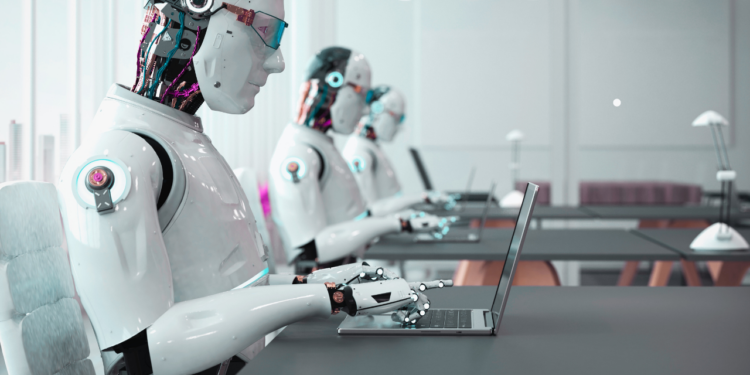What’s going on:
Research published in a new book called “Work 3.0” – by University of Birmingham Econ Professor Siddhartha Bandyopadhyay – warns that unchecked technological disruptions could lead to “anti-human” workplaces. The book warns that these new kinds of automation tools and digital solutions might take precedence over human employees, according to University of Bimingham.
Why it matters:
The research found that the shift towards digitalization and automation tools can result in higher unemployment, increased competition for minimum-wage jobs, and greater inequality. Professor Bandyopadhyay anticipates that many workers whose jobs become automated by new technologies will struggle to reskill or retrain. This struggle will potentially lead to a bleak future for those who cannot adapt to the changing digital landscape.
How it’ll impact the future:
Technological advancements may impact industry leaders and governments to consider the potential drawbacks and ensure that the digital transition does not leave a significant portion of the workforce behind.
An example of this new digital transformation in the workplace can be seen with the IT company Accenture. The company announced in April 2022 that 150,000 new staff members would work in the Metaverse using VR headsets from their first day on the job, according to University of Birmingham post.
New policies and programs might be created to support reskilling and retraining efforts for employees being replaced by automation. Policies and programs may also help with promoting a balanced approach to technology adoption that still values human contributions and fosters inclusive work environments.



 Dr. Gleb Tsipursky – The Office Whisperer
Dr. Gleb Tsipursky – The Office Whisperer Nirit Cohen – WorkFutures
Nirit Cohen – WorkFutures Angela Howard – Culture Expert
Angela Howard – Culture Expert Drew Jones – Design & Innovation
Drew Jones – Design & Innovation Jonathan Price – CRE & Flex Expert
Jonathan Price – CRE & Flex Expert










